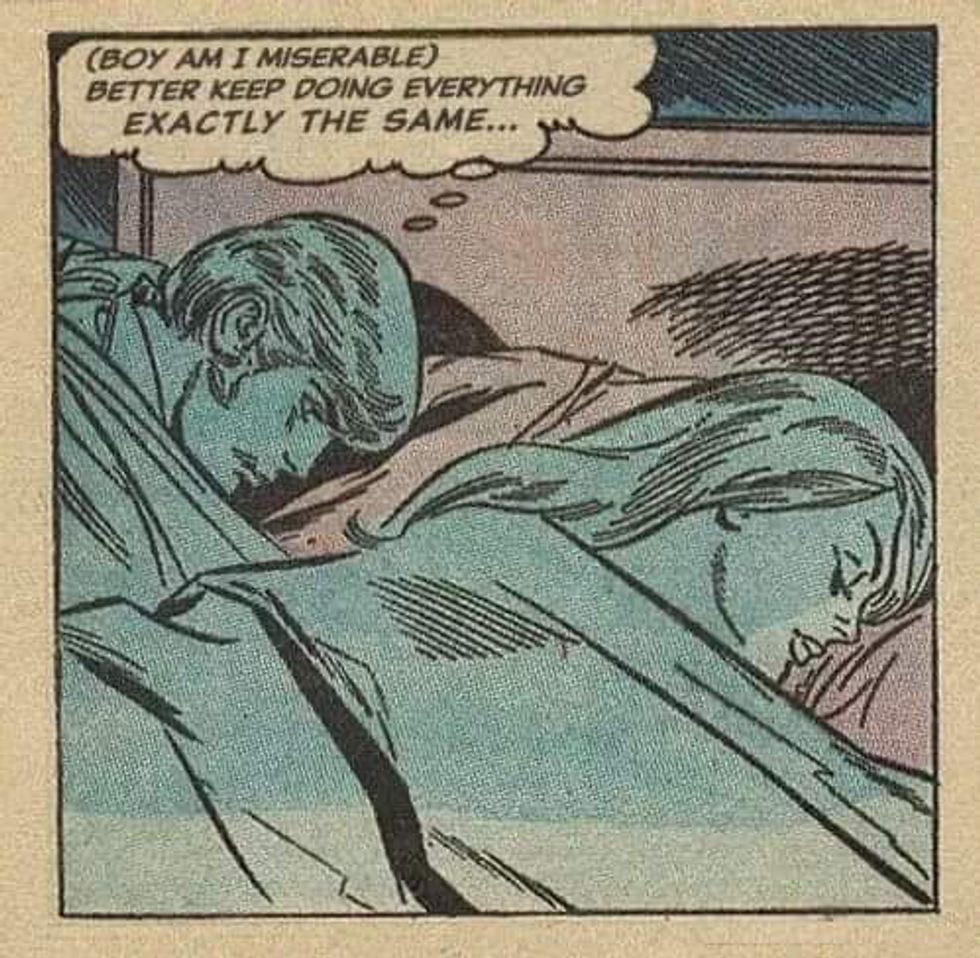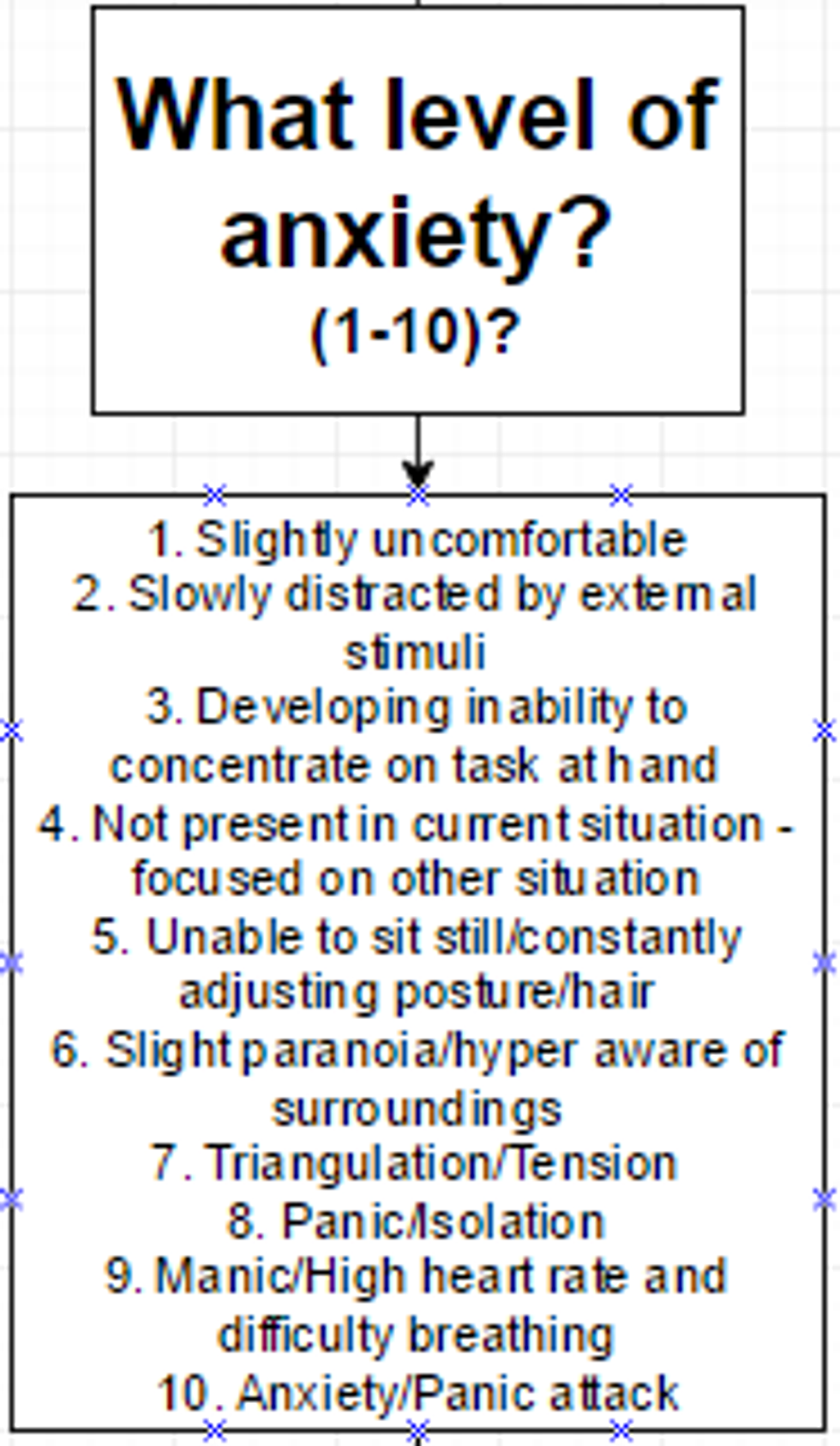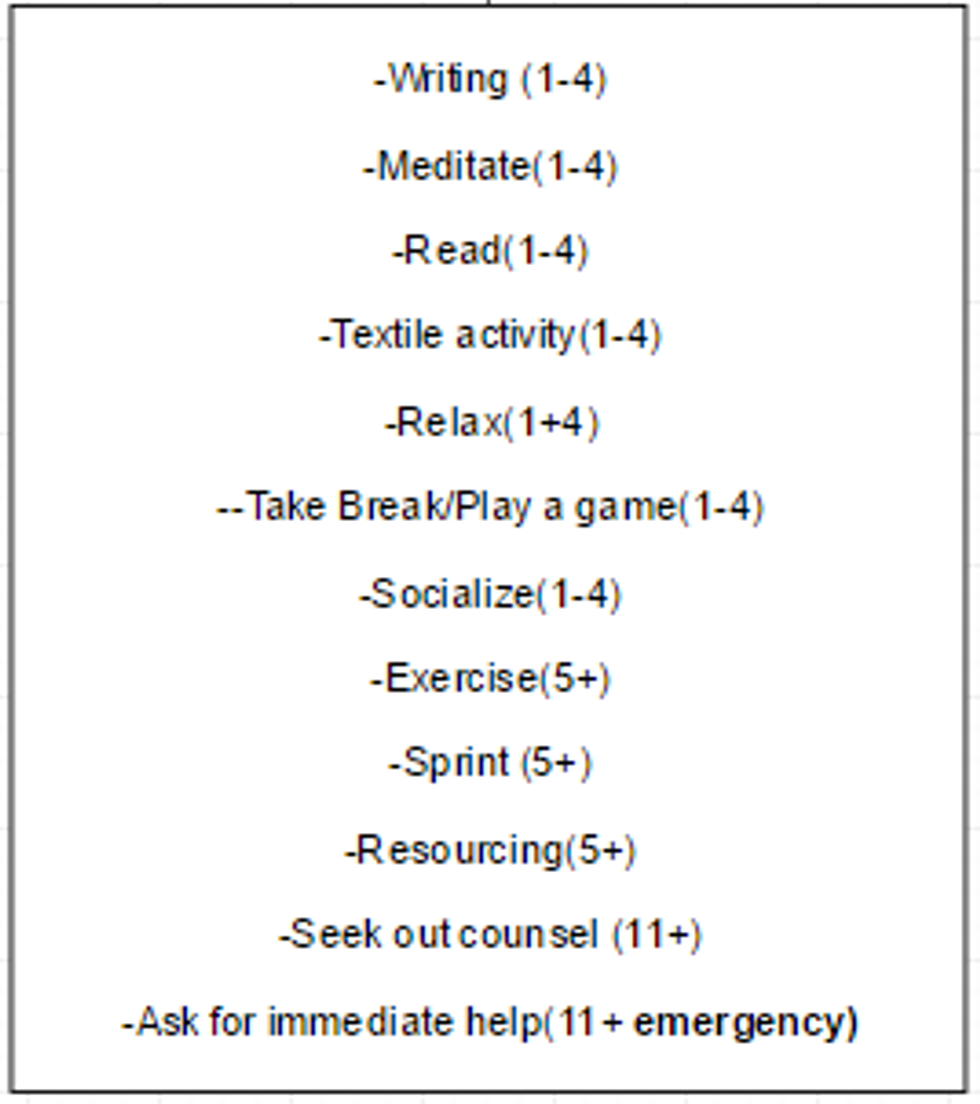Most of us are no stranger to depression; around 16.1 million adults aged 18+ have had at least one “depressive episode” in the past year. With it being so prevalent, I thought it important to highlight a bit of my own personal experience dealing with it from such a young age. I personally can’t remember a time in my life where I always felt 100% “happy," and although most of that can possibly be attributed to the simple ups and downs of life, mine happened to be a bit more pronounced, and often. I tried various things to treat my depression, though it was coupled with a few other diagnoses, such as Autism Spectrum Disorder, and General Anxiety Disorder, I had to treat and cope with each of these different parts of my being separately.
To start off, I use very specific language when referring to depression and anxiety -- I call them “parts.” I refer to them this way because, even though I have these diagnoses, I am not depressed, or I am not anxious. I have depression and anxiety. Consider yourself the CEO of a large company. You are sitting in the boardroom of your company’s headquarters, and you are seated at the head of the table, as you should be. Those who work for you are seated around you; in the real life version of this situation, these would be various people who work in different parts of the company, possible investors, and other people of noteworthy importance. In context to a diagnosis, you, the CEO, are sitting at the head of the table in the boardroom of you. Those who are sitting around you are parts of you; depression, anxiety, stress, codependency, dependability, happiness, sadness, bipolarity, anything that makes up a piece of who you are and what your personality is. As in the real-life example, they work for you, meaning, as the CEO, it is your choice and your decision to allow them to have what power they have over you. Unfortunately, when in the deepest, darkest depths of depression or mid anxiety attack, the absolute hardest thing is to override the voice or pressure inside your head that is depression or anxiety.
The most important things I have found for myself are identifying the different levels of Anxiety/Depression I find myself in. A simple scale from one to ten is probably the easiest and most comprehensive way to go about this. If I'm feeling anxious, I have created a specific scale for anxiety that helps me identify what I'm feeling, and how it's impacting me. Take this:
I know now that when I'm feeling anxious, I have an easier way of describing to myself, or anyone else that may be helping me (possibly a therapist, or even just a friend), so that I can better identify what I need to do to help myself get better. Though I know when I'm in the depths of the emotions, reading this chart isn't going to be the easiest thing, but at least, once I've figured this out, I have prepared myself better for when I find myself in an episode.
There's a lot of misconception about medication, as well -- though most people who take it may or may not experience feelings of sadness or loss of autonomy. Even though I take medication, I take it because I know that if I did not, I would struggle to function at the same level that I do now. Even if you've experienced this same feeling, it's important to remember that medication is just another part in your boardroom, and that it works for you to make you the best you can be. Consider medication to be sitting beside you, as your secretary. Depression, anxiety, distraction, and all the other diagnoses you may have must answer to the medication before they get to you, since the secretary controls who does and doesn't get to talk to you, and where the secretary can't handle things, it is up to you to use coping mechanisms or surround yourself with other things that make you healthy.
Coping mechanisms are one of, if not the most important part of mental health. Though medicine is a life-saving thing to have, it does not fully correct the problem. It is up to us to pick up the slack where medicine falls off, or what it cannot do we must do for ourselves. In the same chart I made for myself as listed above, I have this box:
I have listed out coping mechanisms including (but not limited to) the ones that help me best when I'm dealing with different levels of anxiety. I know some, like writing, or basic meditation, may help me when I'm starting to feel somewhat uneasy or uncomfortable, but when I'm feeling panicky, my heart rate is up, and I'm having difficulty breathing, I need to seek out counsel or ask someone immediately for help, as it is at too serious a level for me to deal with on my own. At this point, trying to save myself isn't productive; though it may automatically make me uncomfortable to ask someone else for help, I know that it's what I have to do or whatever I'm feeling can only get worse over time.
The saying "mind over matter" is the most important part of recovering or coping with mental health. The flaw with this is these two things are products of our minds, so trying to keep them away is more complicated than it seems. I have spent years and years trying to train myself to be able to do this, and it was not until last May that i found myself capable of overriding my brain and telling it what I needed to do. Though this kind of thing doesn't come easy, and even some are already born with the ability to do so, it is the most important tool you can have in your arsenal to protect yourself from harm.
All in all, depression, while not something that is ideal to have a diagnosis of, is a gift in disguise. I learned many hard things from my depression, many of which I could not have learned if I wasn't dealing with it on a regular basis. When I am depressed, it's a stark contrast to when I am happy, go-lucky, and carefree, but it is that contrast that helps me appreciate my happiness on a deeper level. It is cliche, but we learn the most important lessons when we are put in the most uncomfortable situations. Depression, though not always constant, is one such situation. I can either allow it to control me and consume the energy I have, or focus the energy I have to controlling it and, while not making it go away, allowing it to be there and letting it be a part of me I am comfortable with.

























